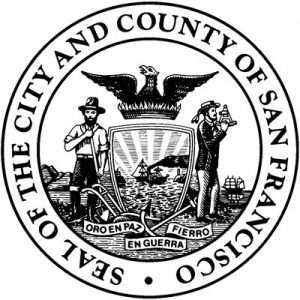 Ordinance 52-19 became effective in April 2019 and expands upon existing San Francisco Building Code registration requirements for “Vacant or Abandoned” “Commercial Storefronts.”
Ordinance 52-19 became effective in April 2019 and expands upon existing San Francisco Building Code registration requirements for “Vacant or Abandoned” “Commercial Storefronts.”
A storefront becomes “Vacant or Abandoned” once it has been unoccupied for 30 days (among other earlier triggers for blighted or unsecured storefronts). A “Commercial Storefront” is broadly defined as “any area within a building that may be individually leased or rented for any purpose other than Residential Use as defined in Planning Code.” (See § 103.A.5.1 of the San Francisco Building Code.) So, a building that is 97% leased could still contain a Vacant or Abandoned Commercial Storefront, which would technically require registration under the Building Code.
As amended by Ordinance 52-19, the Building Code imposes the following requirements on San Francisco property owners:
1. An owner is required to register a Commercial Storefront within 30 days of it becoming Vacant or Abandoned (i.e., usually 60 days from the date that the applicable portion of the building becomes unoccupied). (See § 103A.5.2.)
-
- The Board of Supervisors eliminated a key exemption for Vacant Commercial Storefronts that are “actively being offered for sales, lease or rent.”
- Exemptions remain for Vacant Commercial Storefronts that have been issued permits for repair, rehabilitation or construction, or where an owner or lessee is actively pursuing a required permit.
2. A property owner must pay an annual registration fee ($711) at the time of registration. (See § 103A.5.2.)
-
- Previously, the fee was due 270 days after the Commercial Storefront became Vacant or Abandoned.
3. After registering a Vacant or Abandoned Commercial Storefront, a property owner is also required to hire a licensed professional each year (at the owner’s cost) to certify that the Commercial Storefront meets code requirements. (See § 103A.5.3.)
-
- Previously, the Department of Building Inspection (DBI) would conduct an inspection at the owner’s cost.
4. If a property owner fails to register with DBI and receives a Notice of Violation, DBI may impose a new penalty equal to 4x the annual registration fee ($2,844). (See § 110A.)
-
- Notably, this penalty is only imposed once DBI sends an owner a NOV.
It is worth noting that DBI is relying on property owners to self-report their own non-compliance, unless DBI either investigates the property or receives a complaint about the property.
Relatedly (but not to be confused with Ordinance 52-19), Supervisor Aaron Peskin has proposed leveling $250 per day against storefronts that remain empty for more than six months. Such a tax would need to be placed on the ballot by the Board of Supervisors, where it would need to pass by a two-thirds vote to become law.
 Gravel2Gavel Construction & Real Estate Law Blog
Gravel2Gavel Construction & Real Estate Law Blog


